Question And Answer
Publications
Articles, publications, books, tools and multimedia features from the U.S. Institute of Peace provide the latest news, analysis, research findings, practitioner guides and reports, all related to the conflict zones and issues that are at the center of the Institute’s work to prevent and reduce violent conflict.
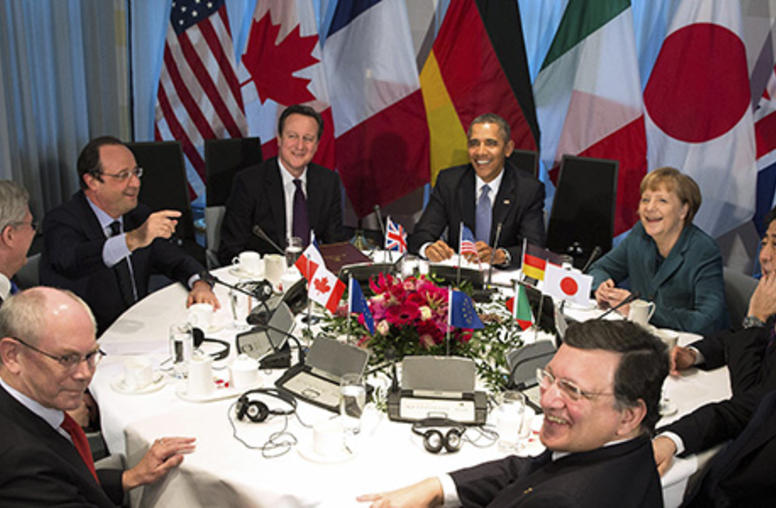
The Big Chill
The sanctions that were placed on Bank Rossiya on Friday, March 21, have sent shock waves through Russian business and financial circles. In the intervening days, hundreds of thousands of Russians have lost access to Visa and MasterCard services. Russian oligarchs have stopped boasting that they are on the U.S. blacklist as international bankers and have begun to shy away from their businesses -- and their access to credit dried up while their stock prices tumbled. Russian owners of mining, m...
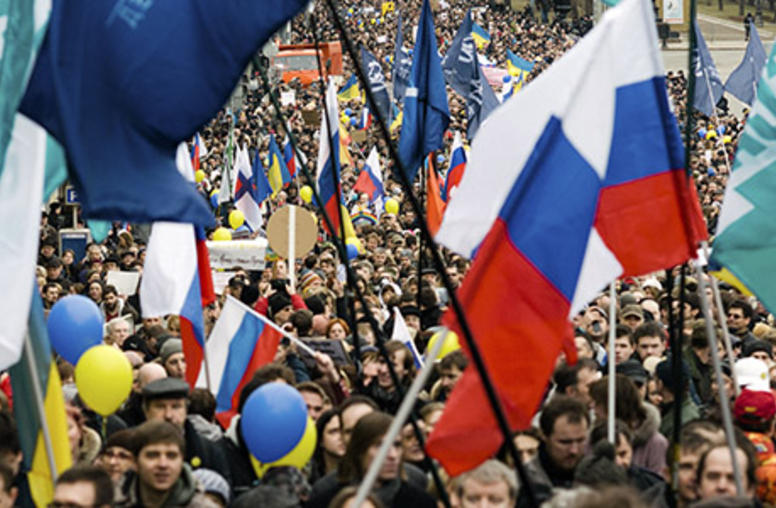
Can a Source of Conflict Be Turned Into a Unifier Instead?
One of the first things the Ukrainian parliament did after the ouster of President Viktor Yanukovych last month was to repeal a law that allowed regional authorities to adopt Russian as a second official language after Ukrainian. The acting president understood the potential of the repeal to inflame tensions and vetoed the measure, but the moves highlight a larger question: what is the precise role of language in ethnic and national conflicts? Is language a driver of conflict, or is that merely a symptom of political and economic grievances?
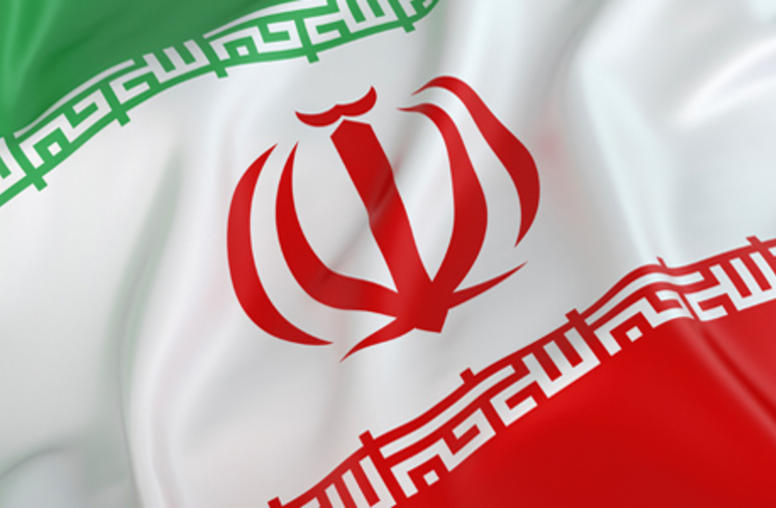
From Détente to Meltdown
As "self-defense forces" storm Ukrainian bases in Crimea and Russian President Vladimir Putin embraces the peninsula's return to the Russian Motherland, Moscow's adventurism is creating a dangerous ripple effect far beyond the cold shores of Crimea. With Russia, the United States, and Europe dancing around the abyss of a new Cold War, Moscow's cooperation in resolving other international disputes will be severely tested. The first casualty of the Crimea debacle could be the ongoing efforts of...
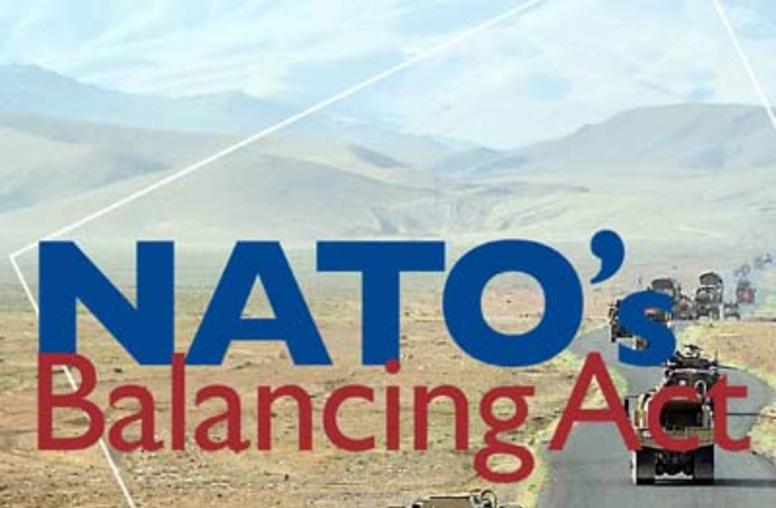
NATO’s Balancing Act
NATO's Balancing Act evaluates the alliance’s performance of its three core tasks—collective defense, crisis management, and cooperative security—and reviews its members’ efforts to achieve the right balance among them. Yost considers NATO's role in the evolving global security environment and its implications for collective defense and crisis management in the Balkans, Afghanistan, Africa, Libya, and elsewhere.
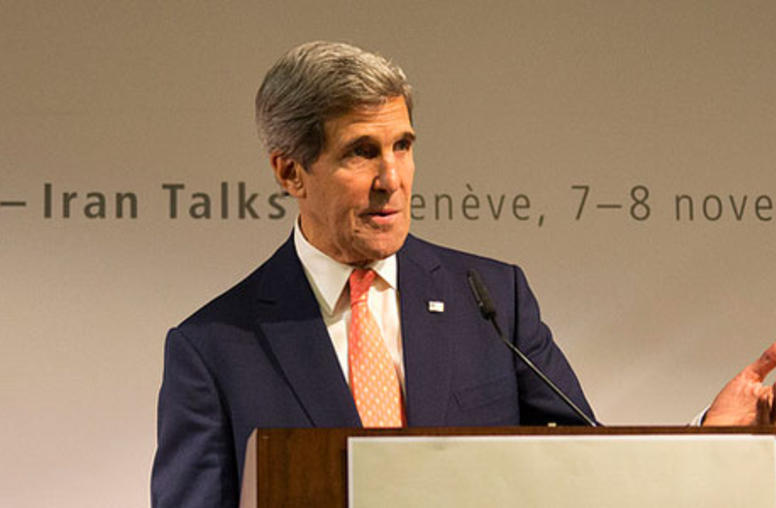
Iran Agreement Sets Agenda for Talks Toward Larger Pact
The agreement with Iran penned in Geneva is a significant step because it creates an agenda for cooperative and reciprocal action between Iran and its powerful foes that has not existed before. Without such a deal – even one as short-lived as this six-month framework – no larger agreement is really possible.
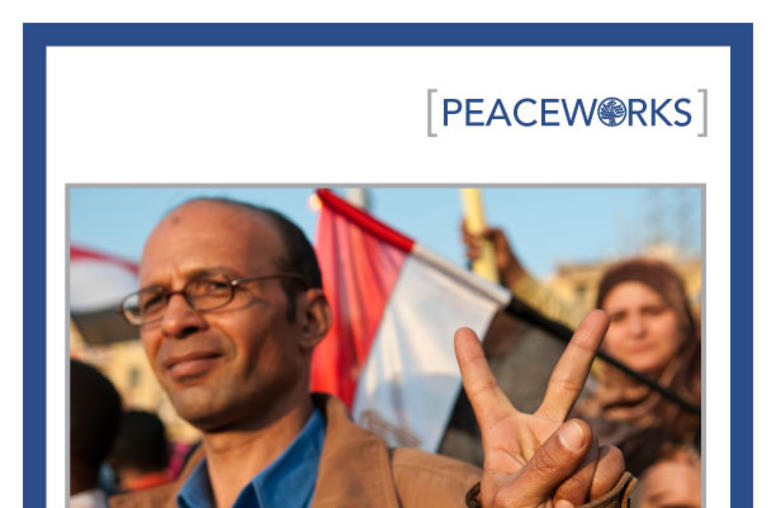
Democratic Breakthroughs: The Ingredients of Successful Revolts
Although each revolution is different, each successful case of democratic breakthrough shares common domestic and international influences. This report examines 11 cases of past successes at removing autocratic regimes and establishing elections. It then applies its findings to the emerging revolutions of the Arab Spring.
Tensions with Iran
As tensions between Iran and Israel heat up, and with the announcement that world powers will resume nuclear talks with Iran, USIP’s Dan Brumberg assesses the latest state of play, and whether the use of force is inevitable.
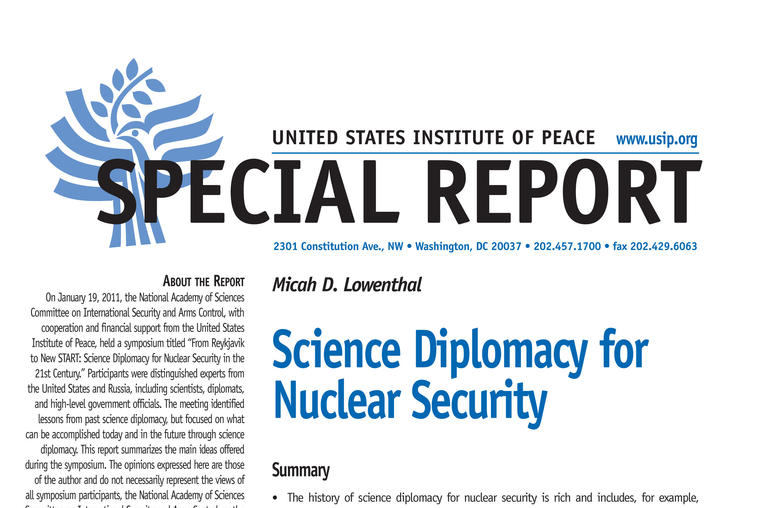
Science Diplomacy for Nuclear Security
Nuclear security expert Micah Lowenthal calls on science diplomacy, which played a key role in promoting U.S.-Soviet cooperation, to renewed engagement on current issues: nonproliferation, countering nuclear terrorism, verification of nuclear treaties, and ballistic missile defense.
On the Issues: Iran and P5+1 Talks
USIP expert Dan Brumberg previews the upcoming talks with Iran and provides background on the current situation.
New START Debate Spotlights Strategic Posture Commission Guidance
With the U.S. Senate’s ratification of the New Strategic Arms Reduction Treaty (New START), the United States and Russia now await the Russian parliament’s likely ratification to make important reductions in their strategic nuclear arsenals. Throughout debate, senators on both sides of the aisle cited the findings and recommendations of the 2009 Strategic Posture Commission, chaired by former secretaries of defense William Perry and James Schlesinger.